Frank Martin is one of those composers whose work seems to survive only by virtue of constantly renewed neglect. His quite large body of work is well represented in the CD catalogues, but rarely performed in the UK. One of his most powerful works is Le Vin herbé, though his fully-fledged opera on The Tempest also deserves revival. Welsh National Opera, ever adventurous, has mounted a staged version of Le Vin herbé, and despite its being more of a cantata than an opera and in English. The text is based on Joseph Bédier’s version of the Tristan myth, so some reference to Wagner, in discussing it, is inevitable. Written at the end of the 1930s, Martin’s piece is deliberately non-Germanic, though clearly anyone writing a work with Tristan as a model at any time would be mad. Nonetheless, for any literate opera lover, thoughts of Wagner’s masterpiece are inevitable. Indeed, Vin may be one of those rare works that need to be experienced in relation to a preceding one. For whereas much of the allure of Tristan und Isolde is due to its pervasive ambiguity, romantic love presented as both the only thing ultimately worth existing for, and as the deepest source of anguish, Vin makes no bones about the unmitigated misery of love. Its last words warn us about ‘the injustice, the grief, the pains, all the pangs of love’. Its lovers fall in love by accident, drinking of the fatal potion, whereas Wagner’s are already desperately in love, the potion merely a trigger.
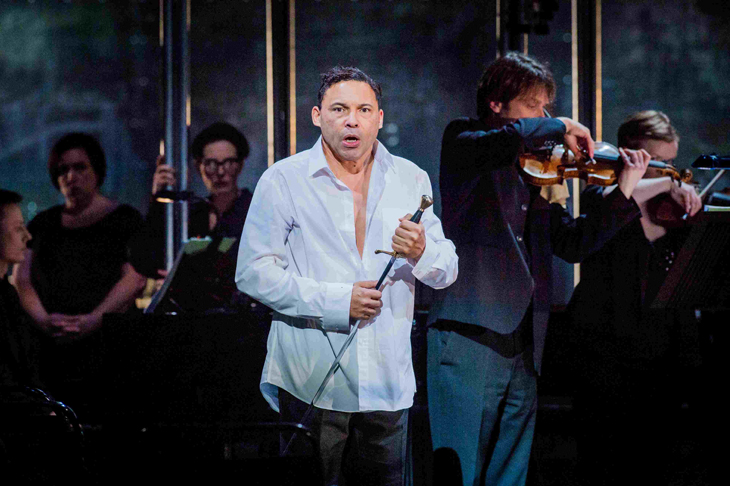
Le Vin Herbe
Vin presents the story through a combination of, and alternation between, narrative and reflection on the one hand, and dialogue and action on the other, in proportions roughly similar to those of a Truffaut film. In director Polly Graham’s and designer April Dalton’s staging the chamber ensemble are at the centre of the stage, and behind them there is a raised walkway with stairs at either end. When Tristan and Iseult unite it is on the walkway, and — I think against the mode of the work, though effectively — Tristan hastily removes his tie and jacket and untucks his shirt, while gently easing Iseult out of her long white dress, leaving her in her petticoat. The two lovers are admirably sung by Caitlin Hulcup and Tom Randle, but powerful as Randle is, it seemed to me that he acted in a style incongruous with the rest of the piece. He goes in for a full-blooded performance, as if in the other Tristan, writhing, staggering, and so on in a way at odds with the prevailing statuesque quality of the performance —but he is affecting.
The musical idiom of Vin is individual without being unmistakable, as is much of Martin’s oeuvre. It owes a good deal to the Stravinsky of the neoclassical period, but also to Debussy’s Pelléas et Mélisande. Hieratic might be one word for it. Under the assured baton of James Southall, and rightly without an interval, Vin is 95 minutes of absorption and reflection, giving us something to contemplate rather than to experience. If that sounds austere, it is, but it is also very worthwhile, as the intensity of concentration from the audience made clear. See it while you can.
The next evening in Cardiff I saw another, far more famous and harrowing opera on the subject of love’s dreadfulness, Puccini’s greatest opera, Madam Butterfly. This is a work that I am convinced one should not see too often, because its surface allure is so appealing that one might go to experience that at the expense of the deep agonies which Puccini unflinchingly presents. This WNO production, originally by the GDR director Joachim Herz, I first saw in 1978, but it has weathered well. The set is a matter of over-arching foliage, and the house has many sliding panels that create or eliminate separate rooms. The main difference in this dramatic production is that it incorporates some of the music which the composer cut after the fiasco of the opening night. In Act One there is much more of Butterfly’s relations, including the irksome drunken uncle, than survived for the second run in Brescia and success; many phrases in the love duet are slightly different; and, most intrusively, the last act has not got Pinkerton’s pathetic aria of self-reproach — indeed he leaves the stage singing ‘I’ll get over it’ (in Italian). His American wife Kate has a much more positive role in the action, even singing Cio-Cio-San’s ‘Triste madre! Triste madre!’ and thus just about ceasing to be the most nugatory character in all opera.
The title role is sung, in the second cast, by Linda Richardson, who still has a lot to learn about the role, but was sufficiently in command of it to show that she may become one of its leading contemporary exponents; and the same goes for the burly Pinkerton of Paul Charles Clarke, jolly and shamingly callous. Conductor Lawrence Foster, an Enescu expert, tended to dwell on ravishing orchestral details rather than the grand shape, and WNO’s orchestra responded with familiar fine playing. I was moved, but not shattered; quite a relief.
Got something to add? Join the discussion and comment below.
Get 10 issues for just $10
Subscribe to The Spectator Australia today for the next 10 magazine issues, plus full online access, for just $10.
You might disagree with half of it, but you’ll enjoy reading all of it. Try your first month for free, then just $2 a week for the remainder of your first year.

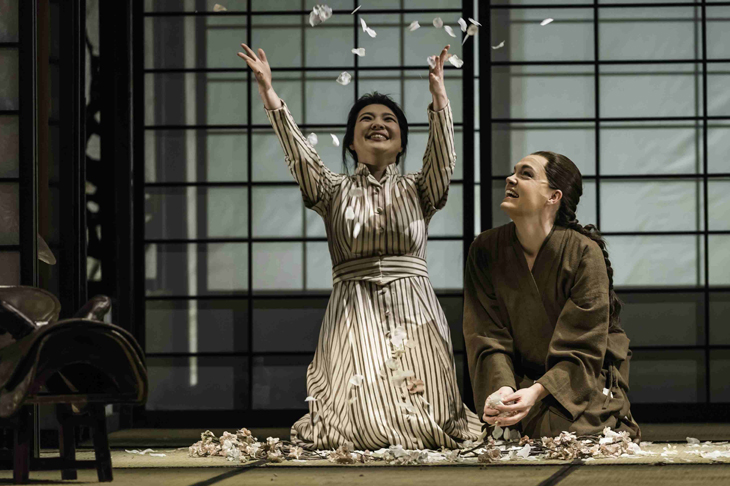
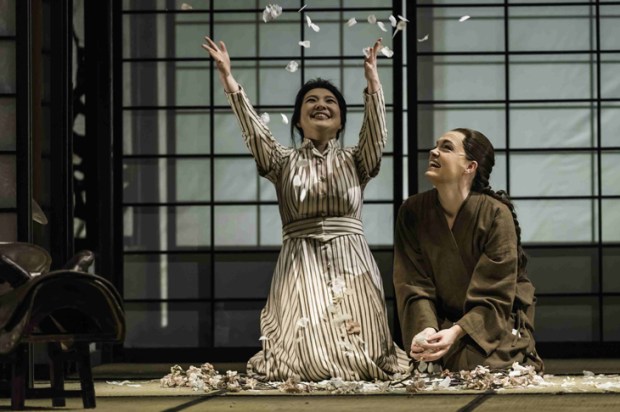
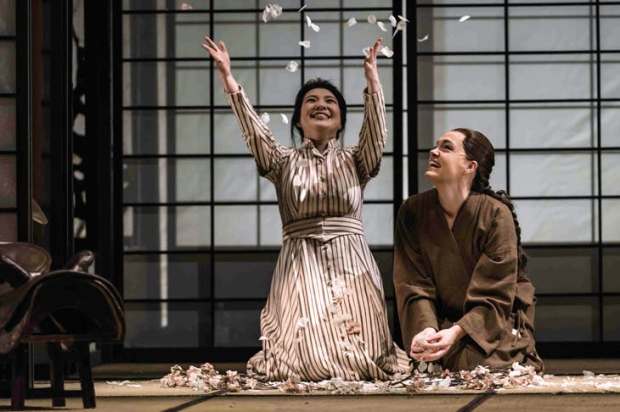
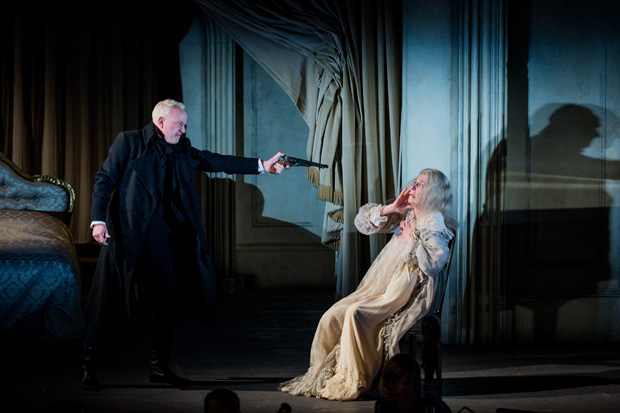
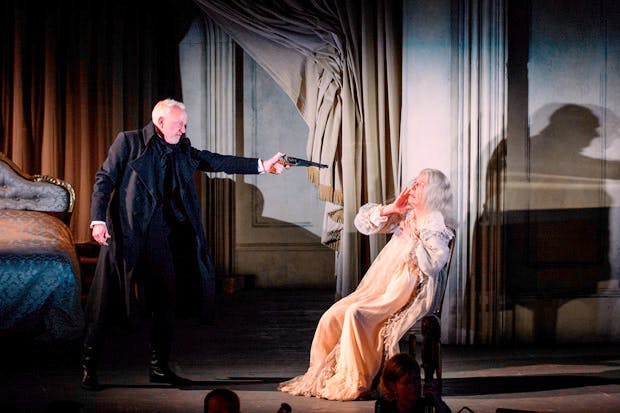






Comments
Don't miss out
Join the conversation with other Spectator Australia readers. Subscribe to leave a comment.
SUBSCRIBEAlready a subscriber? Log in